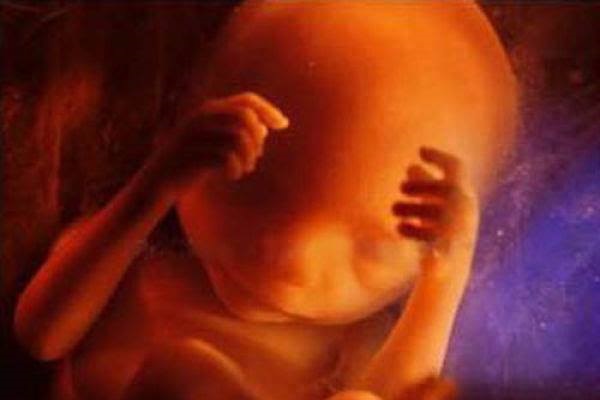Surrounded by moms and babies, Iowa Gov. Kim Reynolds signed a new law Friday to prohibit abortions after an unborn baby has a detectable heartbeat.
Reynolds said she is “100-percent pro-life,” and pro-life lawmakers expressed hopes that the law eventually could lead to the reversal of Roe v. Wade.
The bill would require abortion practitioners to test for the unborn baby’s heartbeat before performing an abortion. If a heartbeat is detected, the abortion would be prohibited except in cases involving medical emergency, rape, incest or fetal abnormalities deemed to be “incompatible” with life.
Because an unborn baby’s heartbeat is detectable by about six weeks of pregnancy, the bill would prohibit almost all abortions in Iowa. It is the earliest abortion ban in the United States.
The state House sent the bill to Reynolds earlier this week after a long, contentious debate.
Right now: Gov. Reynolds signs the heartbeat bill #iagov #ialegis #iapolitics pic.twitter.com/1nWA2Q7Nm8
— Gov. Kim Reynolds (@IAGovernor) May 4, 2018
Immediately after Reynolds’ announcement Friday, branches of Planned Parenthood and the American Civil Liberties Union in Iowa responded with plans to sue the state, the AP reports.
Planned Parenthood went so far as to call the legislation “gross” and “dangerous,” adding, “See you in court.”
Previously, pro-life state Rep. Shannon Lundgren, a Republican, admitted that the legislation likely would expose the state to a legal challenge, KMA Radio News reports.
“The science and technology have significantly advanced since 1973,” Lundgren said. “It is time for the Supreme Court to weigh in on the issue of life. It has taken decades for the science to catch up with what many have believed all along, that she’s a baby.”
On Friday afternoon, Marjorie Dannenfelser, president of Susan B. Anthony List, praised Iowa lawmakers for boldly defending unborn babies’ lives.
“The bold pro-life action taken by the Iowa legislature reflects growing national pro-life sentiment and restlessness under the extreme status quo imposed by Roe v. Wade,” Dannenfelser said. “We stand with Iowa lawmakers and Governor Kim Reynolds for advancing legislation that recognizes the humanity of the unborn child by acknowledging and protecting her or him at the first detectable heartbeat.”
The goal of the legislation is to prevent the deaths of thousands of unborn babies every year. However, even some pro-life advocates admit that the success of the legislation is uncertain. While the rationale behind the bill is noble, a number of pro-life leaders recognize that, for the present, such bills may create unintended consequences that could hamper the pro-life cause.
Because of the current make-up of the U.S. Supreme Court and lower courts, a law to prohibit abortions in the first trimester most likely would not survive a court challenge. President Donald Trump promised to appoint pro-life justices to the courts, but he would have to appoint at least one more Supreme Court judge before the Iowa legislation would have a chance of being upheld.
North Dakota and Arkansas passed heartbeat bills several years ago, but federal courts struck down both laws.
The Eighth Circuit Court of Appeals said the following about its ruling on the six-week ban: “Because there is no genuine dispute that (North Dakota’s law) generally prohibits abortions before viability — as the Supreme Court has defined that concept — and because we are bound by Supreme Court precedent holding that states may not prohibit pre-viability abortions, we must affirm the district court’s grant of summary judgment to the plaintiffs.”
When courts rule against such laws, state taxpayers often are forced to reimburse pro-abortion groups for their legal fees.








